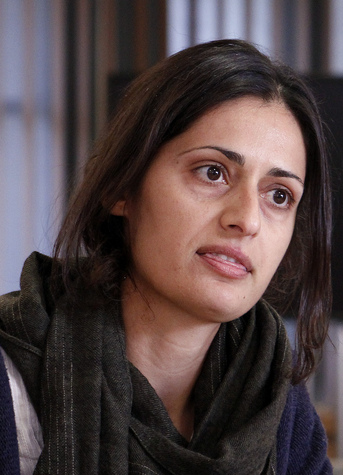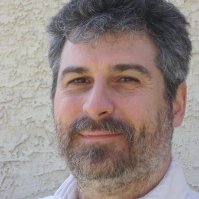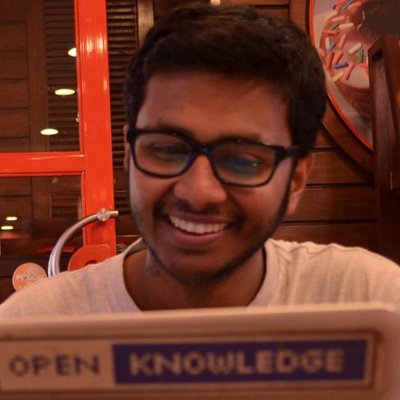 Over the past few months, I’ve been in England, China, Denmark, New Zealand, and Canada. Each of them is rethinking their healthcare IT strategy and is not entirely satisfied with past progress. I’m often asked by senior government officials to help harmonize IT strategy at the country level. That I can do. I’m also asked to discuss the US Presidential campaign, but that defies rational explanation. I frequently say that healthcare IT issues are the same all over the world. Here’s a few common observations..
Over the past few months, I’ve been in England, China, Denmark, New Zealand, and Canada. Each of them is rethinking their healthcare IT strategy and is not entirely satisfied with past progress. I’m often asked by senior government officials to help harmonize IT strategy at the country level. That I can do. I’m also asked to discuss the US Presidential campaign, but that defies rational explanation. I frequently say that healthcare IT issues are the same all over the world. Here’s a few common observations..
News
UK's Development Agency Funds Frontier Technologies to Development Challenges
 The three-year Frontier Technology Livestreaming initiative was launched this week (1 November) at the agency's headquarters in London, United Kingdom, along with a report that singles out 10 technologies that fit its definition of 'frontier'. These are technologies with the potential to "displace existing processes" and "reshape industry and communications, and provide urgently-needed solutions to global challenges like climate change", according to the report...
The three-year Frontier Technology Livestreaming initiative was launched this week (1 November) at the agency's headquarters in London, United Kingdom, along with a report that singles out 10 technologies that fit its definition of 'frontier'. These are technologies with the potential to "displace existing processes" and "reshape industry and communications, and provide urgently-needed solutions to global challenges like climate change", according to the report...
- Login to post comments
- News
Writing an Academic Paper? Try Fidus Writer
 The Fidus Writer online editor is especially for academics who need to write papers in collaboration with other authors, and it includes special tools for managing citations, formulas, and bibliographies. If you're writing an academic paper by yourself, you have a lot of choices for tools to edit your document. Some of them even take care of making your footnotes and bibliographies come out in the right format. But writing collaboratively is harder, for lots of reasons. You could use Google Docs, ownCloud, or even Dropbox to share the document, but then you lose useful citation-management tools...
The Fidus Writer online editor is especially for academics who need to write papers in collaboration with other authors, and it includes special tools for managing citations, formulas, and bibliographies. If you're writing an academic paper by yourself, you have a lot of choices for tools to edit your document. Some of them even take care of making your footnotes and bibliographies come out in the right format. But writing collaboratively is harder, for lots of reasons. You could use Google Docs, ownCloud, or even Dropbox to share the document, but then you lose useful citation-management tools...
- Login to post comments
- News
On the Road
- Login to post comments
- News
Will Your DNA Become Your Own Medical Record
 It seems very likely that, within the foreseeable future, you will be able to have your DNA sequenced in near real-time, analyzed for defects/mutations, and have therapies specifically tailored to your results -- possibly even actually editing your genes/DNA. This is, after all, the goal of Precision Medicine. What would make this even cooler is that, as long as we're reading your DNA, your entire medical history is also being read -- maybe from the cloud, but maybe from synthetic DNA that you've had implanted, or even from your own DNA, if we start writing directly to it. And, of course, these DNA records would be updated in near real-time as well. Talk about owning your own data!
It seems very likely that, within the foreseeable future, you will be able to have your DNA sequenced in near real-time, analyzed for defects/mutations, and have therapies specifically tailored to your results -- possibly even actually editing your genes/DNA. This is, after all, the goal of Precision Medicine. What would make this even cooler is that, as long as we're reading your DNA, your entire medical history is also being read -- maybe from the cloud, but maybe from synthetic DNA that you've had implanted, or even from your own DNA, if we start writing directly to it. And, of course, these DNA records would be updated in near real-time as well. Talk about owning your own data!
- Login to post comments
- News
Open Source Drives Companies to Change Hiring and Development
 "Do I want to play with this open source thing?" This was the question most people asked 20 years ago when I started reviewing PostgreSQL bug fixes and assembling like-minded database colleagues to help start the PostgreSQL Global Development Group. It's mind-blowing to see how much things have changed. Today, not becoming a follower of some open source community almost means you're cobaling yourself—excluding yourself from the reality of how organizations use open software today. As engineers, we always want to keep up with the latest technologies not only to satisfy our desire to create and innovate, but also to remain marketable in a business world where products and technology constantly evolve. What's happened with the open source movement is different...
"Do I want to play with this open source thing?" This was the question most people asked 20 years ago when I started reviewing PostgreSQL bug fixes and assembling like-minded database colleagues to help start the PostgreSQL Global Development Group. It's mind-blowing to see how much things have changed. Today, not becoming a follower of some open source community almost means you're cobaling yourself—excluding yourself from the reality of how organizations use open software today. As engineers, we always want to keep up with the latest technologies not only to satisfy our desire to create and innovate, but also to remain marketable in a business world where products and technology constantly evolve. What's happened with the open source movement is different...
- Login to post comments
- News
How Open Access Content Helps Fuel Growth in Indian-Language Wikipedias
 Mobile Internet connectivity is growing rapidly in rural India, and because most Internet users are more comfortable in their native languages, websites producing content in Indian languages are going to drive this growth. In a country like India in which only a handful of journals are available in Indian languages, open access to research and educational resources is hugely important for populating content for the various Indian language Wikipedias...
Mobile Internet connectivity is growing rapidly in rural India, and because most Internet users are more comfortable in their native languages, websites producing content in Indian languages are going to drive this growth. In a country like India in which only a handful of journals are available in Indian languages, open access to research and educational resources is hugely important for populating content for the various Indian language Wikipedias...
- Login to post comments
- News
How Apache Kafka is Powering a Real-Time Data Revolution
 Two years ago, Neha Narkhede co-founded a company called Confluent to build on her team's work with Apache Kafka. In this interview, we talk about how lots of companies are deploying Kafka and how that has led to a very busy GitHub repo. Narkhede will keynote at All Things Open in Raleigh, NC next week. Q: What was it like leaving LinkedIn to start your own company? Narkhede: It was a great experience and a natural extension of the mission that my co-founders and I had been working on for the past several years—of bringing Apache Kafka and our vision for a new future for a company's data architecture built around streaming data to the forefront...
Two years ago, Neha Narkhede co-founded a company called Confluent to build on her team's work with Apache Kafka. In this interview, we talk about how lots of companies are deploying Kafka and how that has led to a very busy GitHub repo. Narkhede will keynote at All Things Open in Raleigh, NC next week. Q: What was it like leaving LinkedIn to start your own company? Narkhede: It was a great experience and a natural extension of the mission that my co-founders and I had been working on for the past several years—of bringing Apache Kafka and our vision for a new future for a company's data architecture built around streaming data to the forefront...
- Login to post comments
- News
What Is Deep Learning, and Why Should You Care About It?
 Whether it's Google's headline-grabbing DeepMind AlphaGo victory, or Apple's weaving of "using deep neural network technology" into iOS 10, deep learning and artificial intelligence are all the rage these days, promising to take applications to new heights in how they interact with us mere mortals. To go deeper (yes, I went there) on the subject, I reached out to the team at the deep learning-focused company Skymind, creators of Deep Learning For Java (DL4J), and authors of the recently released O'Reilly book Deep Learning: A Practitioner's Approach, Josh Patterson and Adam Gibson...
Whether it's Google's headline-grabbing DeepMind AlphaGo victory, or Apple's weaving of "using deep neural network technology" into iOS 10, deep learning and artificial intelligence are all the rage these days, promising to take applications to new heights in how they interact with us mere mortals. To go deeper (yes, I went there) on the subject, I reached out to the team at the deep learning-focused company Skymind, creators of Deep Learning For Java (DL4J), and authors of the recently released O'Reilly book Deep Learning: A Practitioner's Approach, Josh Patterson and Adam Gibson...
- Login to post comments
- News
A Look Inside the 'Blinky Flashy' World of Wearables and Open Hardware
 While looking at the this year's All Things Open event schedule, a talk on wearables and open hardware caught my eye: The world of the blinky flashy. Naturally, I dug deeper to learn what it was all about. Though Gina Likins and Jen Krieger of Red Hat would like to leave a few surprises for the lucky folks who attend their talk, they told me they can promise at least the following: ideas about how you can integrate simple circuitry into your outfits to "tron-ify" your wardrobe,
While looking at the this year's All Things Open event schedule, a talk on wearables and open hardware caught my eye: The world of the blinky flashy. Naturally, I dug deeper to learn what it was all about. Though Gina Likins and Jen Krieger of Red Hat would like to leave a few surprises for the lucky folks who attend their talk, they told me they can promise at least the following: ideas about how you can integrate simple circuitry into your outfits to "tron-ify" your wardrobe,
ways to add interactivity to art projects (or science projects! or exhibits!) that turn a spectator into a co-creator...
- Login to post comments
- News
The Basics of Open Source Quality Assurance
 Open source depends on a sustainable community to develop code rapidly, debug code effectively, and build out new features. Because community involvement is voluntary, people's skills, levels of involvement, and time commitments can vary. Given the variable nature of these factors, along with the fact that open source often relies on a philosophy of "release early, release often," quality assurance can be become challenging. In order to maintain the quality of the projects, the community including the developers, quality engineers, and the users of the projects have to work together...
Open source depends on a sustainable community to develop code rapidly, debug code effectively, and build out new features. Because community involvement is voluntary, people's skills, levels of involvement, and time commitments can vary. Given the variable nature of these factors, along with the fact that open source often relies on a philosophy of "release early, release often," quality assurance can be become challenging. In order to maintain the quality of the projects, the community including the developers, quality engineers, and the users of the projects have to work together...
- Login to post comments
- News